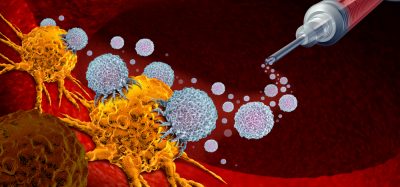BCL2 protein linked to metastatic castration-resistant prostate cancer
Posted: 18 September 2024 | Drug Target Review | No comments yet
ICR researchers have discovered that prostate cancer patients with high BCL2 levels have a shorter overall survival rate.


Researchers at The Institute of Cancer Research (ICR), London, have found a link between the BCL2 protein, which promotes cell survival, and metastatic castration-resistant prostate cancer (mCRPC), with this protein being a potential novel drug target.
In one of the largest studies of its kind, the scientists examined 427 biopsies from 245 mCRPC patients in two independent cohorts. They estimated that around 10 percent of prostate cancer patients have high levels of BCL2 and discovered that these individuals had a much shorter overall survival from the time of diagnosis of mCRPC, of 20.4 months instead of 53.0 months.
In the second group, the team observed that, depending on the cancer’s level of BCL2, there is a significant difference in response to common hormone therapy treatments. The PSA level dropped by over 50 percent in only 12.5 percent of those with higher levels of BCL2. This compared to 47.6 percent of patients with lower expression of BCL2. Furthermore, the overall survival from starting therapy was notably different, being 9.7 months for those with higher levels of BCL2 compared with 24.3 months.
Despite this, no difference in overall survival or PSA response was discovered when cancers were treated with docetaxel. This indicated chemotherapy could be a more effective treatment than hormone therapy for patients with high BCL2 levels.
Targeting BCL2
The scientists experimented in the lab to target BCL2. The best anti-tumour response in cells was elicited when the BCL2 protein family (BCL2, BCLXL and MCL1) were targeted together. To safely target these three proteins combined, the team proposed that in humans, drug delivery technologies like antibody-drug conjugates which combat cancer cells exclusively and spare healthy tissue, would be required.
Professor Johann de Bono, Professor of Experimental Cancer Medicine at ICR, and Consultant Medical Oncologist at The Royal Marsden NHS Foundation Trust, commented: “If targeting BCL2 proves effective in clinical trials, patients with advanced prostate cancer will be able to look forward to better, personalised treatments. Our research has also suggested a combination strategy for therapies which should be explored and may prove even more effective than targeting BCL2 alone.”
Already, a clinical trial for prostate cancer testing the BCL2 inhibitor venetoclax alongside the hormone therapy enzalutamide has started.
This study, funded by The Wellcome Trust, Prostate Cancer Foundation, Prostate Cancer UK, and Cancer Research UK, was published in Journal of Clinical Investigation.
Related topics
Cancer research, Drug Targets, Oncology, Protein
Related conditions
metastatic castration-resistant prostate cancer (mCRPC)
Related organisations
The Institute of Cancer Research (ICR)








